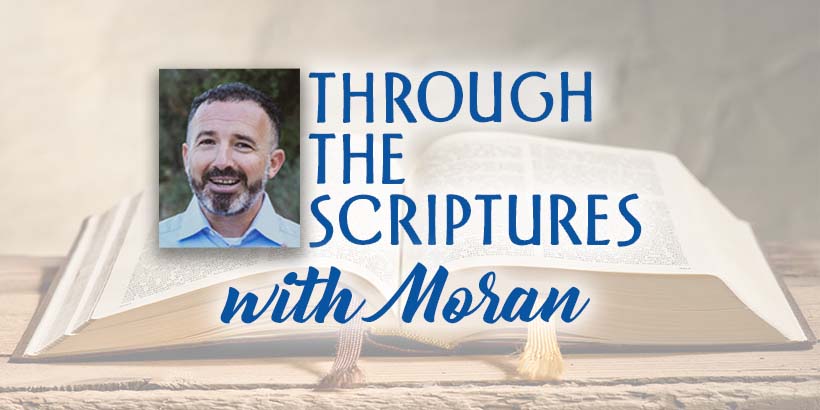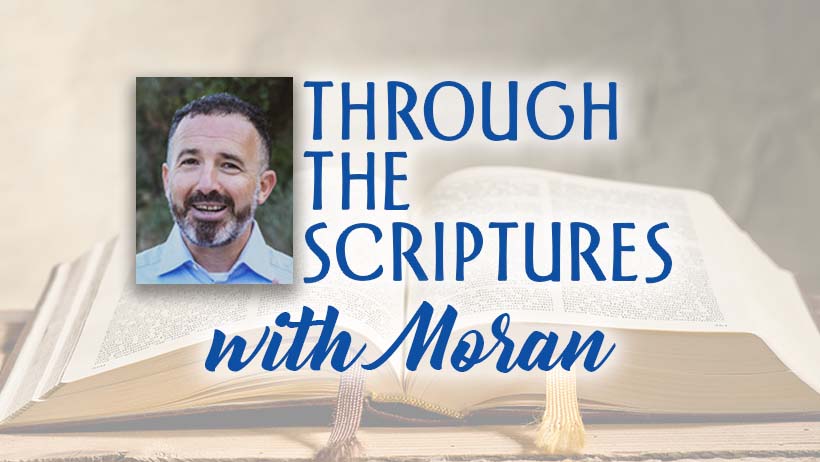
Parashat Ha'azinu (Listen)
D’varim (Deuteronomy) 32:1-52
Haftarah: 2 Samuel 22:1-51
This week’s portion takes me back to one of the most personal moments of my life. As many of you know, on January 22, 1995, I lost several friends in a double suicide bombing at the Beit Lid junction here in Israel. Twenty-one soldiers and one civilian were murdered that day. Among them was Yuval, one of my closest friends from the army.
Yuval and I often sat together on a mountain overlooking the Jordan River on Israel’s side, dreaming of the day we would cross into Jordan, climb Mount Nebo, and look at the Land of Israel together. Years later, on Israel’s Memorial Day, I had the privilege of standing on Mount Nebo myself. It was a bittersweet moment, fulfilling a dream we once shared but standing there without Yuval. From that vantage point, for the first time in my life, I saw what Moses saw.
It was there that Deuteronomy 32:48–52 became alive to me:
Go up to this mountain of the Abarim, Mount Nebo, which is in the land of Moab opposite Jericho, and look at the land of Canaan, which I am giving to the sons of Israel as an inheritance… For you will see the land at a distance but you will not go there, into the land which I am giving the sons of Israel.
On a clear day, you can see much of the Land of Israel from Mount Nebo, the Land of Promise. Yet Moses, the faithful servant of the LORD, was not allowed to enter.
What struck me that day was Moses’ extraordinary obedience. He knew his dream would not be fulfilled. He knew he would not step foot in the Land. Yet he continued to lead with faithfulness until his last breath. That forced me to ask myself: How far am I willing to go in obedience to the LORD, regardless of what I might see or not see, receive or not receive?
These past two years have been exhausting. Years of horrific war, of loss and pain on both a personal and national level. Years marked by devastation, where at times the darkness seemed to outweigh the light. And yet, even in the midst of it all, God has given strength. He has given faith to press on when everything in us felt like stopping.
One verse in this week’s portion has been a lifeline for me:
See now that I, yes, I, am He; and there is no god besides Me. I put to death, and I make alive; I wound, and I heal; and there is no one who can deliver from My hand.
Deuteronomy 32:39
God is in control. Even when we hurt. Even when we question. Even when we forget. He alone holds life and death, wounding and healing, judgment and mercy.
This echoes in David’s words in the Haftarah, spoken after years of betrayal, false accusations, and personal loss:
The LORD is my rock and my fortress and my deliverer; my God, my rock, in whom I take refuge, my shield and the horn of my salvation, my stronghold and my refuge; my savior, You save me from violence.
2 Samuel 22:2–3
What David declared, Moses sang before him:
Listen, you heavens, and I will speak; let the earth hear the words of my mouth. May my teaching fall like rain, my speech settle like dew, like gentle rain on new grass, and showers on tender plants. For I proclaim the name of the LORD. Ascribe greatness to our God. The Rock, His work is perfect, for all His ways are just; a God of faithfulness and without iniquity, righteous and upright is He.
Deuteronomy 32:1–4
Both Moses and David remind us that our Rock does not change. He is faithful in life and in death, in the valley and on the mountain, in the pain of loss and in the hope of redemption.
And like Moses on Nebo, and David in his battles, we are called to keep pressing on, trusting the One who heals, saves, and restores.
Moran


2 Comments on “Our Rock, in Whom We Trust”
Hope from victory YESHUA ♥️amen Brother
Reading the stories that are written, inspire me to keep pressing on and pressing in. I am I supporter of Israel, and had the opportunity to be there this past May to June 25th. What I experienced was a very minut understanding of what you have faced and have been facing for all your lives. Our little group will be gathering to pray for Israel on October 7. Light in the darkness.
Sincerely
Janelle